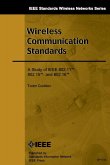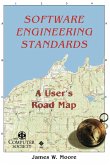Across Asia there is a keen interest in the potential advantages of America's market-led system of voluntary standards and its contribution to US innovation leadership in complex technologies. For its proponents, the US tradition of bottom-up, decentralized, informal, market-led standardization is a "best practice" model for innovation policy. Observers in Asia are, however, concerned about possible drawbacks of a standards system largely driven by the private sector. This study reviews the historical roots of the American system, examines its defining characteristics, and highlights its strengths and weaknesses. A tradition of decentralized local self-government has given voice to diverse stakeholders in innovation. However, a lack of effective coordination of multiple stakeholder strategies constrains effective and open standardization processes. Asian countries seeking to improve their standards systems should study the strengths and weaknesses of the American system. Attempts to replicate the US standards system will face clear limitations--persistent differences in Asia's economic institutions, levels of development, and growth models are bound to limit convergence to a US-style market-led voluntary standards system.
Hinweis: Dieser Artikel kann nur an eine deutsche Lieferadresse ausgeliefert werden.
Hinweis: Dieser Artikel kann nur an eine deutsche Lieferadresse ausgeliefert werden.








